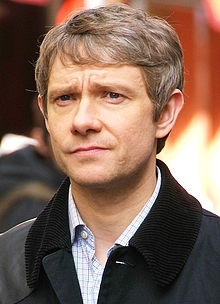This scene takes place after a huge prank that Janus and Opal pulled off and it looks like things might have gotten out of control. It's also their first kiss.
“How are you . . . feeling?” asked Janus, his voice was soft but electric, like the air just before a storm.
“Worried?” I watched a squad of S&S officers marching down the path that circled the compound. A patrol. Unusual for this time of day. “How should I be feeling?”
He crossed to me, his footsteps muffled by the carpet.
“You’re scared,” he breathed into my ear. I saw his eyes reflected in the window. A predator eyeing skittish prey. “You shouldn’t be.”
For once, the heat of his breath did not cause my cheeks to flush. I turned to face him. Janus used his height and stared down at me, his face raptorial.
“I shouldn’t?” I asked, hoping against logic that what he said could convince me.
“No,” he replied. “Our trick was flawless.”
I cringed, remembering the panic of losing my wristband. Behind my back, I instinctively touched the band, reassuring myself. Janus paused, scrutinizing me. His eyes, like the vacuum of a black hole, pulled everything in and let nothing escape.
“Yes,” he continued. “And as long as neither of us says a word, that’s the way it will stay.”
“I . . . I wasn’t going to say anything.”
“Promise me, Opal.” He reached out one hand and slowly stroked my cheek. I tried to look away. He grasped my chin, forcing my eyes to meet his. “Promise you will say nothing.”
I struggled against his grip. His nails gouged my jaw.
“I . . . I promise.”
Janus studied me for a brief moment. He leaned forward, our noses centimeters apart. His large dark eyes swallowed my vision.
In shock, I felt his lips touch mine. He held me in place but I no longer struggled. I closed my eyes and all thought stopped. All worry disappeared. His lips were soft but adamant. I folded into his arms. His tongue flicked lightly against my lips, then compelled them to part. I gasped as he bit my bottom lip. I tasted the metallic hint of blood, but I felt no pain. Instead, excitement-fueled adrenaline coursed through me. A silent promise of change pulsed in my veins.
Then the embrace ended. Janus stepped back. My knees buckled and I nearly fell. He straightened his shirt, smoothing the wrinkles my body created. I coughed, looking away. Embarrassment stained my cheeks, replacing the heat of the moment before.
“I’m glad you agree,” he said, turning his inscrutable gaze back to me. Nothing showed in his eyes. “It would be inconvenient for you to be . . . punished.”
My face drained of heat. I couldn’t breathe. I coughed again, mumbled something that I hoped he took for acquiescence, and hurried out the door, pausing while the door acknowledged my command. I could feel his gaze burning into my back. I ran down the hall and into my room before his door could slide shut.


.JPG)

















